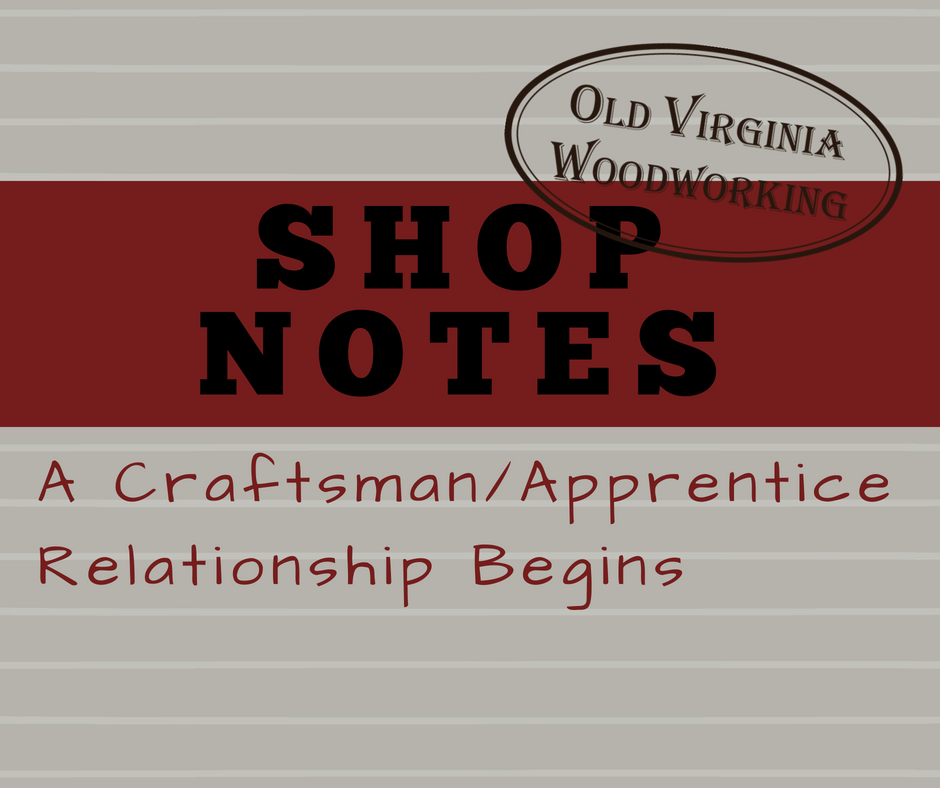Slivers & Saws: Maintaining Shop Safety
One good thing about bringing on my apprentice when I did is that there is an interesting project under way. I do not build as much new furniture as I used to so having a custom walnut library to build is a good change up.
The shop smells wonderful. We have big stacks of walnut parked all around, much of it in various stages of processing. I am 64 years old so it is a blessing to have a young guy around the shop to assist in lifting heavy lumber and moving large cabinets around. Everything is new to my new-found worker so I have to explain everything. Uninitiated hands can do huge damage in zero time if not instructed at every point.
Safety is the Craftsman’s Duty
I also have to think about safety for him. I have never gotten hurt at work beyond ordinary events like slivers, small cuts and such. Even when I had small (or large) construction crews the biggest injury to anyone on my carpentry crews was a broken toe one time. Allowing a countertop to slip from your hands has consequences after all. But here, in my closely guarded domain, I have my ways of doing things. Safety requires vigilance but still, if you work alone every day for a while—well, you have ways of doing things. This is a small shop.
Don’t Put Other People in Danger, Duh
I have a moral duty to train this apprentice to work safely. I have to. If the golden rule means anything I cannot simply use people up and throw them away. Do unto others as you would have them do unto you is a mirror with razor sharp edges. I can hold it up and look but I better wear gloves. I am trying to remember 40 years back now. It is a fair distance to roam mentally. I remember crawling out on a scaffold angling up three stories to the underside of a bat wing soffit. Below me was a pit with a stack of concrete block. The scaffold planks were fir, four wide, resting on ‘T’ braces my bosses had set up when I was not around. My work was to scoot along on that scaffold and nail up soffit panels from underneath the eave. I was alone for it was Saturday.
The only reason I still remember that Saturday is due to the awful feeling when I heard a crash, saw fir planks raining unto those concrete blocks, and wondered how I remained aloft. There I was, my left foot (the one with my weight on it) resting on a plank still hanging by a breath to that ‘T’ brace and my right foot resting on, perhaps, the shoulder of an angel? Nothing I could see anyway. My boss walked up a while later when I was nailing those planks in place as they should have been from the beginning and it was his comments that locked that event in my memory forever. My boss and ‘friend’ Bob told me to stop nailing those planks to the braces and just get back up there.
A Christian Craftsman is Responsible for His Apprentice
I learned a couple of things that day. One is how to tell a boss a big fat NO. Another is that I am, ultimately, responsible for my own safety. A third is the need for employers to have a moral conscience. Christian employers can be great but they can also be immoral and send you to your death just to save a few dollars. I do not want to be that guy (either one). I do not want to be the Christian boss who fails to defend his worker’s safety and knowingly lets that uninitiated worker get bad hurt just because I was lazy or greedy. Christ expects better of us than that. And I know the temptation. Let it not be so among you.
Here I am preaching while unordained. Nevertheless, “Do unto others as you would have them do unto you” applies directly to employers and worker safety—These kinds of concerns shape Christian culture and makes Christendom operate within a different morality than any other. One of our distinctives is that we care about our workers enough to defend their health as much as we are able. The world of work is an imperfect environment, but still, we can genuinely care about our apprentices and all workers and try to protect them.
I guess I got distracted. Next report we can get back to those piles of walnut.



